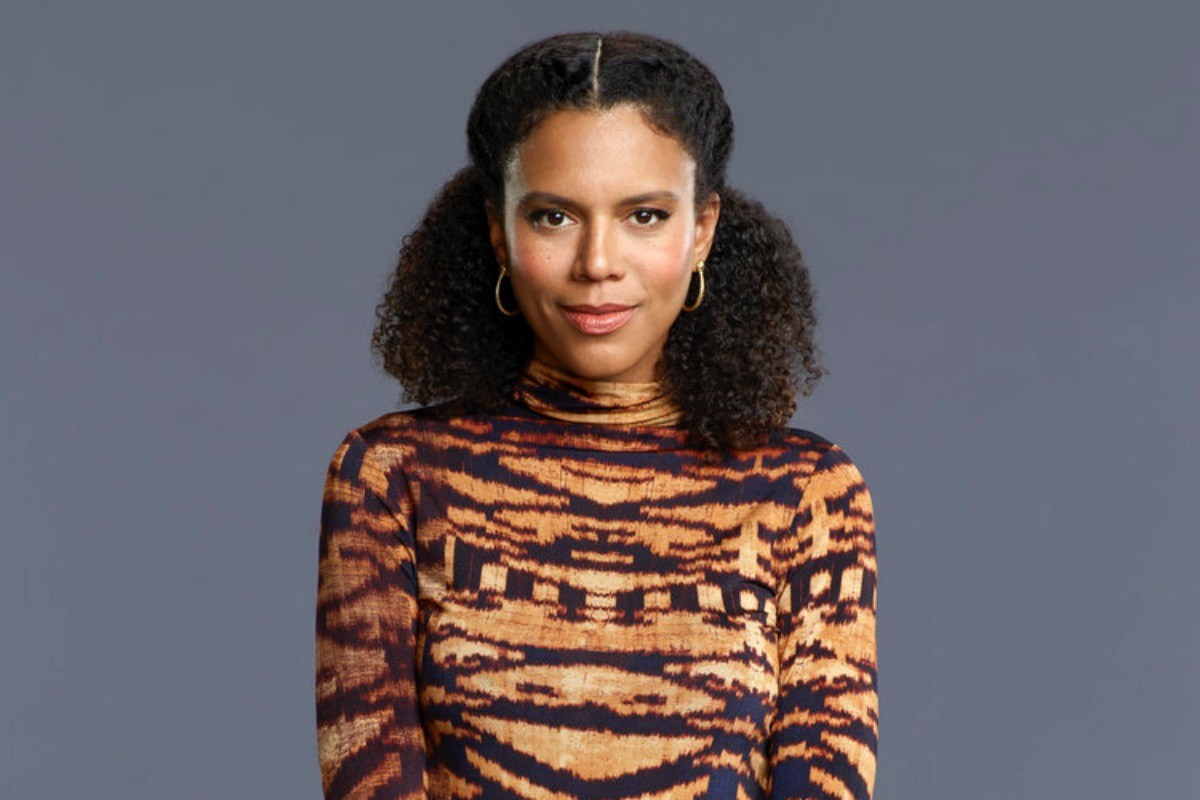Grasie Mercedes is making waves as Fay in NBC’s hit show Grand Crew, but her journey is about more than just comedic timing and on-screen charisma. For Mercedes, a proud Dominicana hailing from Williamsburg, Brooklyn, her role is a powerful statement about Black joy, Black excellence, and the vital need for diverse representation within the Latinx community and Hollywood at large.
Mercedes’ story resonates with many. She fondly recalls a childhood steeped in the rich traditions of her Dominican heritage, growing up in a multigenerational home alongside her mother, aunt, and grandmother. Her abuela, a “typical Latin Dominican grandmother,” with her ever-present “shrine to Jesus,” deeply influenced Mercedes’ upbringing, complementing her Catholic education. Spanish filled their home, the primary language of her abuela, while the young, US-born Mercedes navigated her world in English. In a relatable twist for many bilingual individuals, Mercedes playfully admits her Spanish is now “kind of sucks,” though she maintains a solid understanding of the language.
Despite her undeniably Latinx upbringing, Grasie Mercedes has encountered frustrating roadblocks in Hollywood’s perception of Latinidad. “I never get to play Latina,” she reveals, highlighting the industry’s narrow view of what a Latina actress should look like. In over a decade in the acting profession, she has only been offered a single audition for a Latina role, a telling statistic that underscores the lack of opportunities for Afro-Latinas in mainstream media.
While Grasie Mercedes proudly identifies as Black and embraces African American roles, she passionately believes in broadening the spectrum of Latinx representation. “We should be able to show the world that (Latinx people) are super diverse and come in all shades, hair types, and features,” she asserts. She points out the significant underrepresentation not only of Afro-Latinxs but also Indigenous and Asian Latinxs within the entertainment industry.
This lack of representation fuels Mercedes’ drive to create her own projects. Her podcast, Not BLANK Enough, delves into the complexities of identity with empathy and insightful nuance. She addresses the “universal theme, especially for people of color” of feeling inadequate or not quite fitting in, a sentiment she recognizes as particularly harmful within Latinx and Asian communities. Mercedes critiques the damaging belief that proximity to whiteness equates to being “better, more desirable, or more beautiful,” a concept she actively challenges in her work.
Whether it’s TV shows, films, or web series, Grasie Mercedes is committed to centering narratives around race, gender, and identity. Inspired by her formative years in Williamsburg, Brooklyn, her first script, aptly titled “Williamsburg,” reflects her personal experiences. Her ultimate career aspiration is to helm her own television show, one that authentically portrays her journey as an Afro-Latina woman.
In Grand Crew, Grasie Mercedes embodies Fay, a recently divorced New Yorker navigating a fresh start in Los Angeles alongside a vibrant group of friends. Fay often finds herself at the heart of the show’s comedic escapades, showcasing Mercedes’ versatility and comedic talent, from humorous hiking mishaps to unexpected pie fights and even wielding a samurai sword in bar antics.
While the first season of Grand Crew, which premiered on December 14, keeps Fay’s backstory relatively under wraps, Grasie Mercedes expresses hope for future seasons to delve deeper into her character’s Latinidad. She emphasizes that Grand Crew is fundamentally about “exploring the Black experience for all different kinds of Black people,” suggesting ample opportunity to weave in Fay’s cultural identity.
It’s noteworthy that African American creators are actively creating space for Afro-Latinx voices like Grasie Mercedes, while the broader Latino establishment often remains silent on issues of Afro-Latinx representation. Mercedes points out the disparity in Hollywood, stating, “Right now in Hollywood, there are so many Latinos who are doing it, making shows and are showrunners. But they’re almost all white Latinxs.” She stresses the urgent need for “Indigenous and Black Latinxs (to have) the opportunity to develop their own shows” to ensure a wider range of experiences are reflected on screen, moving beyond the homogenous narratives currently dominating.
Network television remains a powerful platform, reaching a vast audience. Grasie Mercedes’ presence on NBC’s Grand Crew is a significant step forward for representation. However, the muted response from the Latinx press regarding Mercedes and Grand Crew is disheartening. Despite ongoing conversations about broadening the definition of Latinidad, the lack of recognition for Black Latinx creativity and excellence persists.
It is crucial for Latinx viewers and allies to actively support Grasie Mercedes and Grand Crew, demonstrating the audience demand for diverse stories and authentic representation. Tune in to Grand Crew on NBC and witness Grasie Mercedes shine, not just as a talented actress, but as a vital voice for Afro-Latina representation in Hollywood.
